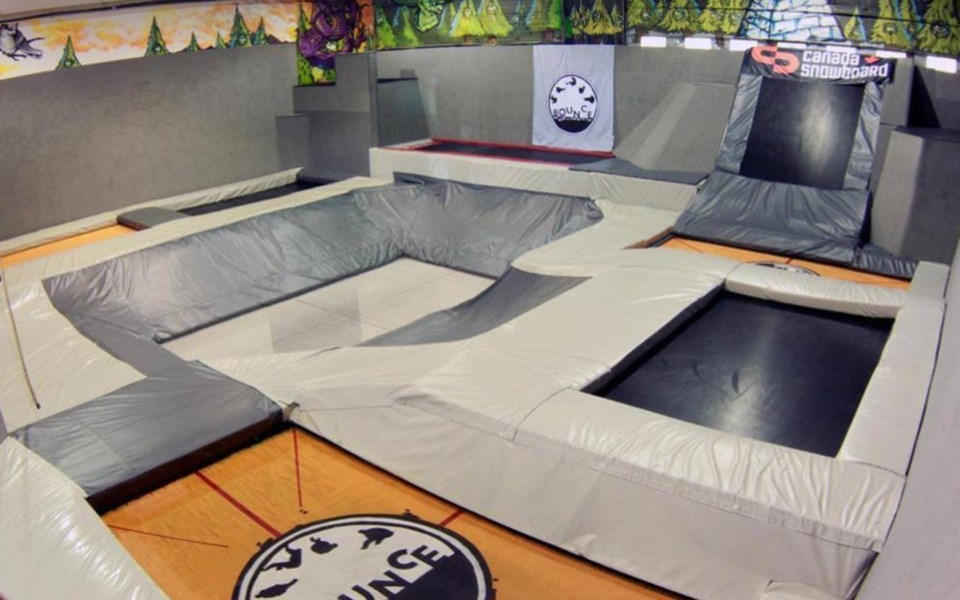Whistler Bounce is closing down after almost seven years in business.
"I'm in here looking at a completely gutted place," said co-owner and operator John Dunbar on a break from tearing down the indoor trampoline park. "This place was all high fives and big smiles, and getting to know all the kids by name in the whole town."
Dunbar said that up until this year, insurance costs stayed relatively stable through the years of operation, at around $16,000 a year. But this year, that figure grew astronomically—to around $100,000 a year.
The decision to close was a "no brainer," he said. "The decision was made for me. There was no way I could survive."
According to a recent article in Canadian Underwriter, insurance companies are "jumping out of the trampoline business."
The article says that contributing factors include "several catastrophic injuries and deaths in the last few years—primarily at trampoline park facilities, but also through provincial gymnastics associations."
In a high-profile incident last January, a Victoria man died in an accident at a Richmond trampoline park. The man's family is currently suing the facility for negligence.
Trampoline parks have swelled in popularity in recent years, prompting Dr. Kathryn Kasmire, a researcher at Connecticut Children's Medical Centre, to look at U.S. emergency room statistics related to trampoline park injuries.
She found that the numbers jumped significantly, from 581 in 2010 to 6,932 in 2014.
"Particularly concerning was the occurrence of severe and debilitating injuries such as spinal cord injuries," concluded the paper.
Despite their popularity, trampoline parks are not regulated in any jurisdiction in Canada, though in a statement to Pique, Technical Safety BC said it is in the process of determining if they should be regulated under its purview. "We have established an advisory panel of stakeholders to support this work and anticipate completion of recommendations for submission to the province later this year," it reads.
Over at the Whistler Gymnastics Centre, however, they are not seeing the same dramatic uptick in insurance, though there have been gradual increases over the last 25 years.
"What's different is that we have policies and procedures that we must follow, which our insurance covers," said club director Tami Mitchell.
The centre is governed by Gymnastics BC, the provincial sport organization responsible for the governance and development of gymnastics in the province.
"In order to have the insurance, we have specific guidelines that we have to follow, such as coach-to-athlete ratios," she said.
While acknowledging there is a risk to trampolines, Dunbar said that Bounce took precautions to ensure the safety of its guests, including adding thick foam throughout the park and ensuring that all staff were certified through the Canadian Freestyle Ski Association as coaches.
"I did everything I could to make it the safest place possible," he said.
Dunbar said that it is a shame that the province doesn't have regulation, and said he looked to other jurisdictions for guidelines on how to exceed safety.
While other trampoline parks in the province often have young staff, Bounce's coaches were "high-level athletes" and the park was focused on helping people learn tricks, rather than simply play around.
Dunbar opened the business with his partner in 2011, and since then he's seen a lot of kids come through the door—as well as his own.
"I feel like I got to know every family in town," he said. "I'm a family man—I've got two kids in town—and this is hard," he said. "My own kids didn't get to have their birthdays here. It's kind of sad for me in that way."




